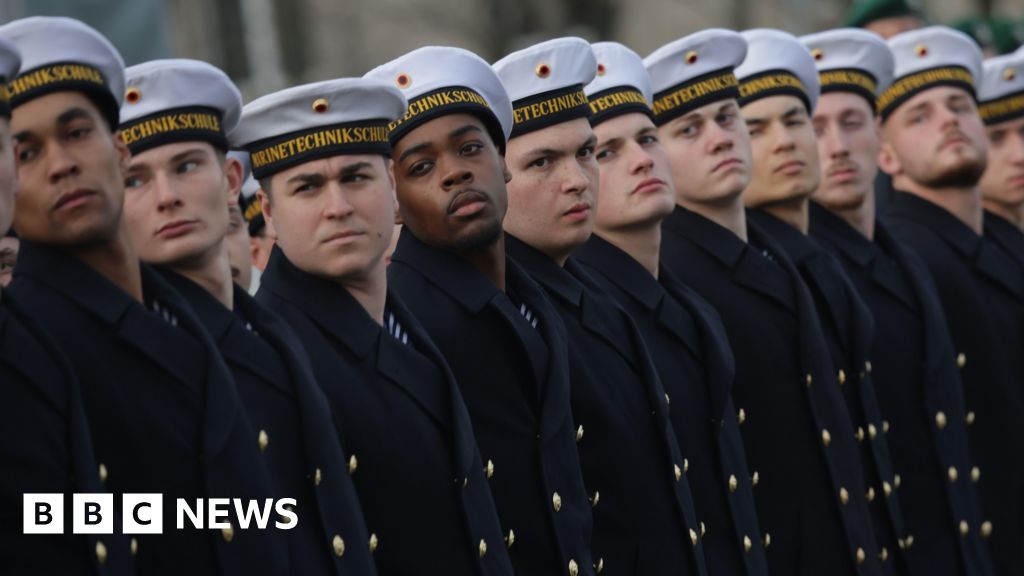Germany's New Military Service Plan: Boosting Bundeswehr Troop Numbers to 260,000 by 2035 Amidst European Security Concerns | Mandatory Questionnaires for 18-Year-Old Men and Potential Conscription Reforms
 Germany
Defense Policy
Germany
Defense Policy

Germany approves a new military service plan to boost Bundeswehr troops to 260,000 by 2035. It mandates questionnaires and medical screenings for 18-year-old me
Germany Implements New Military Service Plan to Bolster Bundeswehr Ranks Amidst Security Concerns
Germany is embarking on a significant transformation of its military, with a newly approved service plan designed to substantially increase the size and readiness of the Bundeswehr. After months of internal political discussions, the coalition government in Berlin has set an ambitious goal: to expand the nation's armed forces to 260,000 personnel by 2035. This strategic shift is largely driven by the evolving geopolitical landscape, underscored by Russia's full-scale invasion of Ukraine, and a heightened focus on national and collective European security.
Mandatory Assessments for Young Men Introduced
A core component of this new initiative, which lawmakers are anticipated to vote on by late 2025, involves a compulsory assessment process for all 18-year-old men. Beginning next year, these young men will be required to complete a detailed questionnaire evaluating their interest and aptitude for military service. This will be followed, from July 2027, by mandatory medical screenings to ascertain their physical suitability for duty. While 18-year-old women will also receive the questionnaire, their participation will remain entirely voluntary.
Currently, the Bundeswehr comprises approximately 182,000 troops. The immediate objective is to augment this figure by 20,000 within the next year. Over the subsequent decade, the long-term vision is to achieve an active troop strength of between 255,000 and 260,000, complemented by an estimated 200,000 reservists. Defence Minister Boris Pistorius has indicated that should these recruitment targets not be met through voluntary means, parliamentary consideration of a form of compulsory enlistment could become necessary. The data gathered from the questionnaires and medical evaluations would then serve as a crucial resource for potential recruits during a national emergency.
Pursuit of Europe's Foremost Conventional Army
Chancellor Friedrich Merz's administration has articulated a clear ambition: to establish Germany as the operator of Europe's strongest conventional army. Armin Papperger, the Chief Executive Officer of Rheinmetall, Germany's leading defence contractor, expressed confidence in achieving this objective, suggesting it could materialize within five years. He highlighted the decisiveness of governmental actions aimed at fortifying the Bundeswehr. This sentiment resonates with earlier warnings from German defence chief Gen Carsten Breuer, who had urged NATO to prepare for a potential Russian offensive within four years, leading Papperger to agree on Germany's need to be "ready in '29."
Public and Political Sentiments: A Divided Perspective
The reintroduction of mandatory elements into military service has sparked considerable debate and opposition. The original coalition agreement between Merz's conservative CDU/CSU and the centre-left SPD had initially proposed a purely voluntary re-establishment of service. However, the current plan introduces mandatory aspects for men, deviating from that initial understanding.
Public opinion is similarly polarized. A recent Forsa survey conducted for Stern magazine revealed that while just over half of respondents generally supported compulsory service, opposition dramatically increased to 63% among individuals aged 18 to 29. This youthful dissent was personified by Jimi, a 17-year-old student from Berlin, who participated in an anti-conscription protest outside the Bundestag. He criticized the government for leveraging an "unlikely and abstract scenario" of war to "steal millions of young people's right to decide what they should be doing," emphatically stating, "I don't want to go to war because I don't want to die or I don't want to be shot at... I also don't want to shoot people."
Conversely, the current "security situation" has motivated others to join the armed forces. Jason, a 21-year-old new recruit to the Bundeswehr, explained his decision: "I wanted to contribute to defend peace, to defend democracy if the worst happens," seeing his enlistment as a way of "giving back to society" and bolstering military deterrence against potential aggressors.
Germany's Evolving Defence Posture
For decades, Germany has approached military power with caution, a direct consequence of its complex 20th-century history. Conscription was suspended in 2011, and defence expenditures significantly decreased following the end of the Cold War. However, Russia's aggression in Ukraine has necessitated a profound strategic re-evaluation. Chancellor Merz explicitly stated earlier this year that German defence policy must now embody the principle of "whatever it takes." Defence Minister Pistorius has sought to reassure the public, asserting that a more robust and deterrent military inherently reduces the likelihood of Germany becoming embroiled in conflict.
This renewed emphasis on re-armament has been a boon for Rheinmetall. CEO Armin Papperger noted the "huge demand" driving substantial revenue for his company, which also supplies Ukraine. Rheinmetall is actively expanding its capabilities across various domains, including vehicles, ammunition, satellite technologies, advanced electronics, and artificial intelligence. The increased demand for defence resources is also in response to persistent pressure from NATO allies, notably the previous US administration under Donald Trump, for European nations to elevate their defence spending. Papperger, who last year was reportedly the target of a Russian assassination plot (a claim he declined to comment on, simply stating, "I feel good, I feel safe"), succinctly encapsulated the contemporary geopolitical climate: "Whatever you call it, it's not a peaceful time."
This new military service plan represents a transformative moment for Germany, signaling a decisive shift from its post-Cold War defence posture and a proactive response to the complexities of the current global security environment.